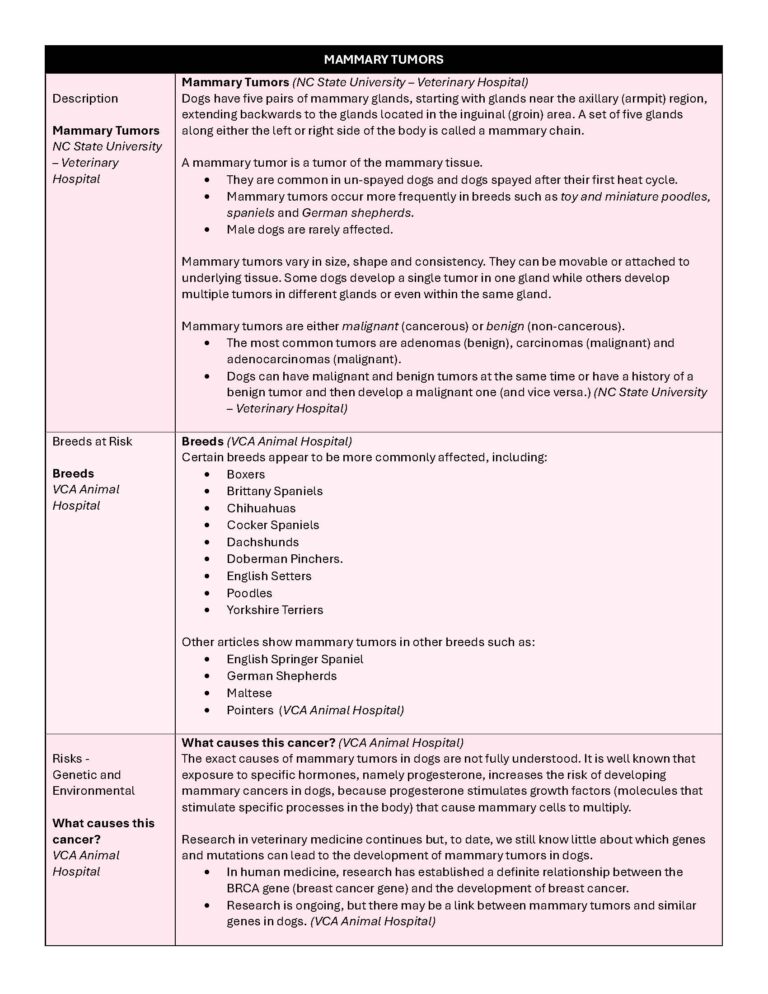Canine Mammary Tumor
& Breeds at Risk
Research, Resources & Education
This website is based on research and is NOT created to diagnose your pet.
Each animal is an individual and may exhibit symptoms in a different way.
It is advised that you ALWAYS CHECK WITH YOUR VETERINARIAN for a proper diagnosis and treatment plan.
Please visit Lost Temple Fitness & Cancer for more information of cancer in humans including
What is Cancer and Treatments.
Table of Contents
Canine Mammary Tumors
Dogs have five pairs of mammary glands, which can become cancerous, especially in un-spayed females. These tumors can be benign or malignant.
Symptoms can include swollen glands, painful abdomen, discharge from one or more glands, ulceration of the skin on the abdomen and/or lethargy.
Treatment includes Surgery, Radiation, Chemotherapy and/or Non-Steroidal Anti-Inflammatory Drugs (NSAIDs)
What Dogs are at Risk?
Some Dogs that are at Risk due to Genetic Predisposition

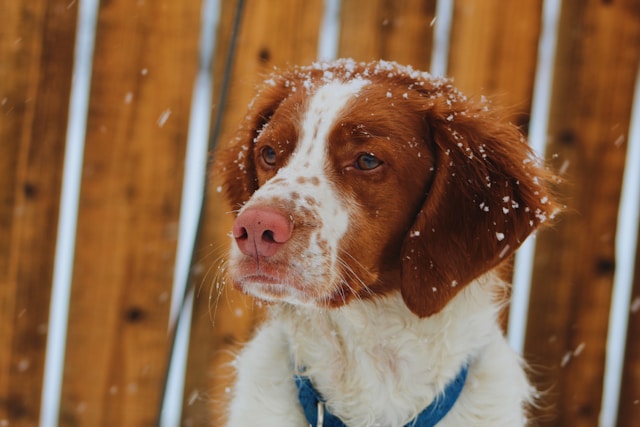



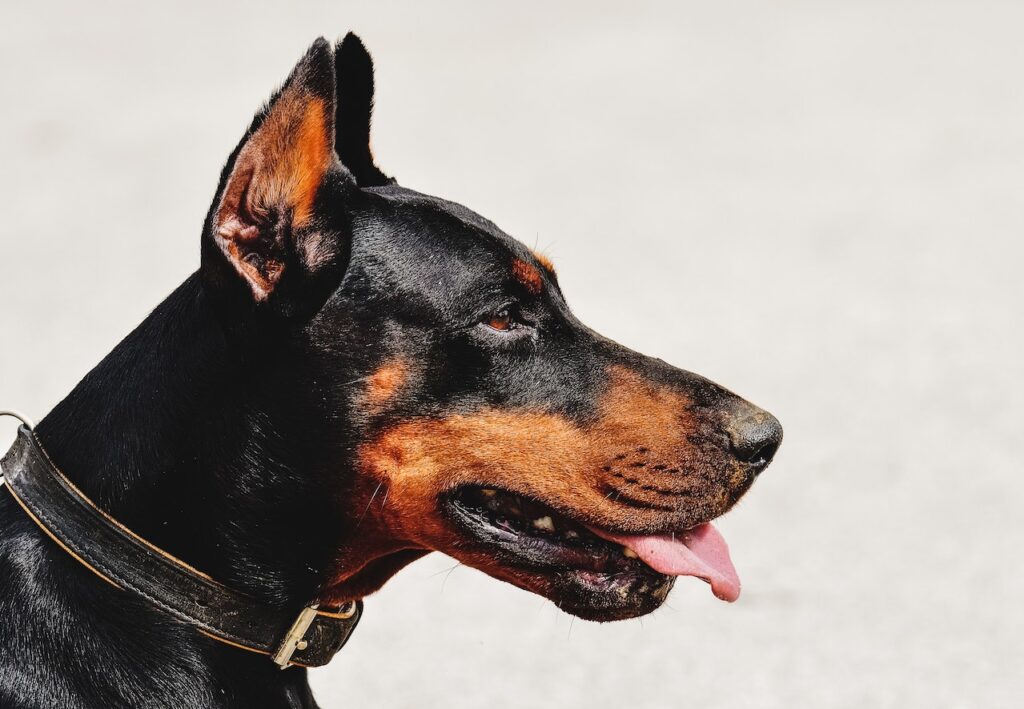
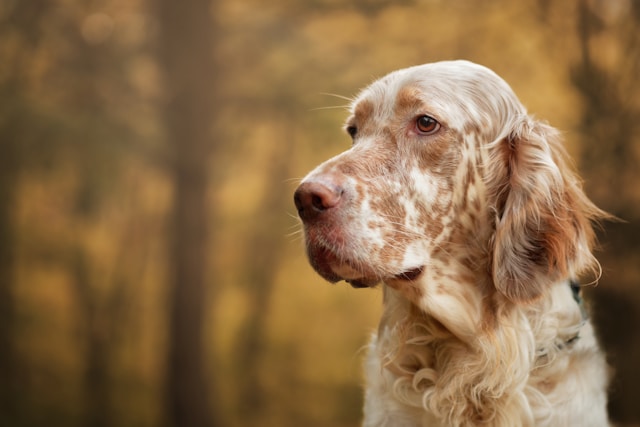



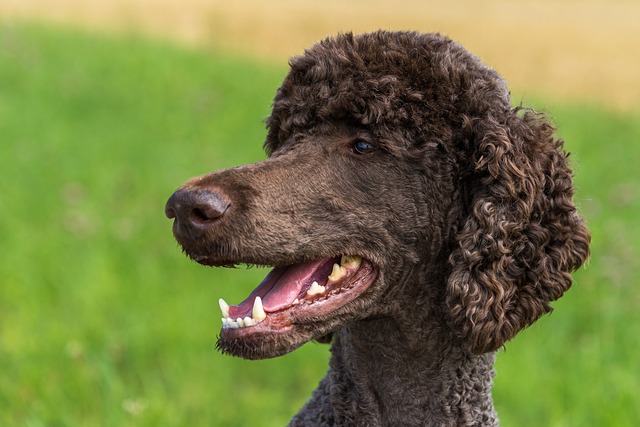
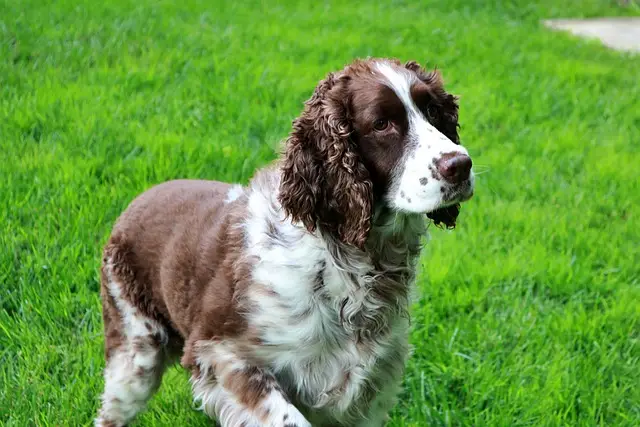

What are Mammary Tumors
Mammary Tumors (NC State University – Veterinary Hospital)
Mammary Tumors (NC State University – Veterinary Hospital)
Dogs have five pairs of mammary glands, starting with glands near the axillary (armpit) region, extending backwards to the glands located in the inguinal (groin) area. A set of five glands along either the left or right side of the body is called a mammary chain.
A mammary tumor is a tumor of the mammary tissue.
- They are common in un-spayed dogs and dogs spayed after their first heat cycle.
- Mammary tumors occur more frequently in breeds such as toy and miniature poodles, spaniels and German shepherds.
- Male dogs are rarely affected.
Mammary tumors vary in size, shape and consistency.
- They can be movable or attached to underlying tissue.
- Some dogs develop a single tumor in one gland while others develop multiple tumors in different glands or even within the same gland.
Mammary tumors are either malignant (cancerous) or benign (non-cancerous).
- The most common tumors are adenomas (benign), carcinomas (malignant) and adenocarcinomas (malignant).
- Dogs can have malignant and benign tumors at the same time or have a history of a benign tumor and then develop a malignant one (and vice versa.) (NC State University – Veterinary Hospital)
Mammary Tumor Videos
YouTube Videos that help explain Mammary Tumors in Dogs
Disclaimer:
This is for research only and Lost Temple Pets does not endorse any video presented on this website.
It is advised that you ALWAYS CHECK WITH YOUR VETERINARIAN for a proper diagnosis and treatment plan.
Causes - Genetic and Spaying
What Causes this Cancer? (VCA Animal Hospital)
What causes this cancer? (VCA Animal Hospital)
The exact causes of mammary tumors in dogs are not fully understood.
- It is well known that exposure to specific hormones, namely progesterone, increases the risk of developing mammary cancers in dogs, because progesterone stimulates growth factors (molecules that stimulate specific processes in the body) that cause mammary cells to multiply.
Research in veterinary medicine continues but, to date, we still know little about which genes and mutations can lead to the development of mammary tumors in dogs.
- In human medicine, research has established a definite relationship between the BRCA gene (breast cancer gene) and the development of breast cancer.
- Research is ongoing, but there may be a link between mammary tumors and similar genes in dogs. (VCA Animal Hospital)
Mammary Cancer in Female Dogs (Cornell University)
Mammary cancer in female dogs (Cornell University)
About half of the tumors are malignant:
- Mammary tumors in female dogs account for 42% of all diagnosed tumors, with a lifetime risk of 23-34%, according to the Veterinary Society of Surgical Oncology (VSSO).
- Compare that to women, who have a 12.4% lifetime risk according to Susan G. Komen, an American breast cancer organization. It’s sobering.
- “At a cellular level, mammary tumors in dogs and cats are very similar to human breast cancer tumors,” says Dr. Scott Coonrod, the Judy Wilpon Professor of Cancer Biology and director of the Baker Institute for Animal Health. “And they may occur in pets even more often than they do in humans.”
- That’s because intact (un-spayed) female dogs have fully developed mammary tissue.
- A dog spayed prior to sexual maturity (around 6 months old) is at a reduced risk of mammary cancer because the spay removes the ovaries, which produce the estrogen that is significant to the full development of the mammary glands.
According to the American College of Veterinary Surgeons, the risk of your dog getting mammary cancer is:
- 0.5% risk for female dogs spayed before their first heat cycle
- 8% risk for female dogs spayed after their first heat
- 26% risk for female dogs spayed after their second heat
- Additionally, 50% of mammary tumors are malignant
Obesity, especially at a young age, as well as breed, may also influence the risk. (Cornell University)
Symptoms
Detection and Diagnosis (Cornell University)
Detection and diagnosis (Cornell University)
Tumors usually are found by owners who feel a lump. Other symptoms include:
- Swollen glands
- Painful abdomen
- Discharge from one or more glands
- Ulceration of the skin on the abdomen
- Lethargy
- Weight loss (at later stages) (Cornell University)
What are the Clinical Signs? (NC State University – Veterinary Hospital)
What are the clinical signs? (NC State University – Veterinary Hospital)
Many dogs show no signs related to a mammary tumor. You may feel a lump while petting your dog or your groomer may notice a mass. Your veterinarian may also discover a mass during a routine exam.
- In more advanced cases, tumors can be ulcerated or bleed. Dogs may lick at the affected gland(s).
- If the tumor spreads (metastasizes), dogs can show weight loss, poor appetite, vomiting, diarrhea and/or breathing difficulties.
- Inflammatory mammary carcinoma is a specific type of malignant mammary tumor.
- Dogs have severe swelling, redness and pain of the gland with the tumor.
- This can extend throughout the entire mammary chain on the affected side or can affect both mammary chains at the same time. (NC State)
Testing / Diagnostics
Diagnostics (ACVS)
Diagnostics (ACVS)
A good general physical exam is needed to find the location, size, and character of all the mammary masses and assess local lymph node enlargement. Other procedures are performed to stage the cancer (determine what type it is and where it is located in the body):
- Bloodwork: blood count, chemistry, urinalysis, and clotting profile
- Abdominal ultrasound, chest x-rays and sometimes CT scan: used to check for cancer that has spread to other parts of the body
- Aspiration (aka Fine Needle Aspirate): a needle is used to sample the mammary mass to help distinguish it from other skin tumors.
- Lymph nodes may also be assessed to look for a spread of cancer cells. This is more reliable in dogs than cats to confirm a diagnosis.
- A biopsy may be indicated to rule out a certain kind of tumor called inflammatory mammary carcinoma, as surgery is generally not recommended for this tumor type. (ACVS)
Treatment
Treatment Options Available and Prognosis (NC State University – Veterinary Hospital)
Treatment options available and prognosis (NC State University – Veterinary Hospital)
Surgery
- Wide surgical resection is recommended for malignant mammary masses.
- Benign tumors require less aggressive surgical margins.
- Surgery is the only treatment required for benign tumors and some malignant tumors.
- Dogs with large tumors, high-grade tumors, tumors that have already spread, and certain histological types are at higher risk for regrowth and spread following surgery.
- Multiple tumors can be removed at the same time.
- Each tumor should be submitted for biopsy because they can all be different. (NC State University – Veterinary Hospital)
Dogs spayed at the time, or within 2 years, of tumor removal lived longer than un-spayed dogs in one study.
Radiation Therapy
- Radiation therapy (RT) has not been investigated for the treatment of mammary tumors in dogs, despite playing a big role in the treatment of this disease in people.
- Possible uses include pre-operative irradiation of large tumors, post-operative irradiation of incompletely resected tumors, or palliative irradiation of inoperable tumors.
- Dogs with inflammatory mammary carcinoma may benefit from radiation therapy.
Chemotherapy
- The role of chemotherapy for dogs with malignant mammary tumors is not well-established. Chemotherapy is recommended for dogs with higher risk of metastasis or tumors that already metastasized.
Non-Steroidal Anti-Inflammatory Drugs (NSAIDs)
- NSAIDs play a role in treating many different types of carcinomas. Dogs with mammary carcinoma can benefit from receiving an NSAID.
Prognosis
The prognosis for dogs with benign tumors is excellent.
- About half of the dogs with malignant tumors also have an excellent prognosis with surgery alone.
- The remaining 50% of dogs with malignant tumors are at risk for the spread of their tumor. This leads to illness and poor quality of life, with survival times usually less than one year.
Dogs with inflammatory mammary carcinoma and mammary sarcomas have a poor prognosis, on the order of weeks to months. (NC State)
Surgery and Spaying: (ACVS)
Surgery and Spaying: (ACVS)
Further consultation with your primary care veterinarian may result in a referral to an ACVS board-certified veterinary surgeon to fully explore your options.
- The type of surgery depends on the size, location, and number of mammary tumors and species of your pet.
- In general, surgery is more conservative for dogs with mammary tumors and involves removal of either the mass alone or the affected mammary gland.
- However, in cats, more aggressive surgery is recommended with removal of one or preferably both sets of mammary glands. Surgery to remove both sets of mammary glands from a cat is often done in two surgical procedures 2–3 weeks apart. The local lymph node should also be removed in cats, if possible, to assess for evidence of spread of the cancer.
- The role of spaying female dogs with mammary tumors is controversial. Most studies have shown no beneficial effect of spaying at the time of tumor removal in preventing the development of new mammary tumors or influencing the aggressiveness or metastatic potential of existing mammary tumors.
- However, spaying at the time of mammary tumor resection may be recommended by your veterinary surgeon because recent studies have shown a beneficial effect in dogs with mammary tumors, and it can prevent unrelated diseases, such as pyometra (uterine infection). (ACVS)
References
References
ACVS American College of Veterinary Surgery- Mammary Tumors
https://www.acvs.org/small-animal/mammary-tumors/
Cornell University, College of Veterinary Medicine – Mammary Cancer
Cornell Richard P. Riney Canine Health Center
Merck/MDS – Mammary Tumors in Dogs
By Karin Sorenmo, DVM, Reviewed/Revised Mar 2024
NC State University – Veterinary Hospital
Medical Oncology: Canine Mammary Tumors
https://hospital.cvm.ncsu.edu/services/small-animals/cancer-oncology/oncology/canine-mammary-tumors/
VCA Animal Hospital – Malignant Mammary Tumors in Dogs
By Malcolm Weir, DVM, MSc, MPH; Debbie Stoewen DVM, MSW, RSW, PhD; Christopher Pinard, DVM
https://vcahospitals.com/know-your-pet/mammary-tumors-in-dogs-malignant
Cancer/Breed Chart
| BREED | BRAIN | HEMANGIO- SARCOMA | LYMPHOMA | MAMMARY TUMORS | MAST CELL TUMOR | MELANOMA | NASAL TUMOR | ORAL | OSTEOSARCOMA | PERIANAL/ ANAL SAC | SOFT TISSUE SARCOMA | TRANSITIONAL (TCC) / UROTHELIAL (UC) |
|---|---|---|---|---|---|---|---|---|---|---|---|---|
| Airedale Terrier | Lymphoma | Melanoma | Nasal Tumor | Soft Tissue Sarcoma | TCC or UC | |||||||
| Basset Hound | Hemangiosarcoma | Lymphoma | Nasal Tumor | Soft Tissue Sarcoma | ||||||||
| Bulldog, English | Brain | Lymphoma | Mast Cell Tumor | Perianal/Anal Sac | Soft Tissue Sarcoma | |||||||
| Bullmastiff | Lymphoma | Mast Cell Tumor | Soft Tissue Sarcoma | |||||||||
| St. Bernard | Lymphoma | Osteosarcoma | Soft Tissue Sarcoma | |||||||||
| Golden Retriever | Brain | Hemangiosarcoma | Lymphoma | Mast Cell Tumor | Melanoma | Oral | Osteosarcoma | Perianal/Anal Sac | Soft Tissue Sarcoma | |||
| Labrador Retriever | Hemangiosarcoma | Lymphoma | Mast Cell Tumor | Melanoma | Nasal Tumor | Oral | ||||||
| Scottish Terrier | Brain | Lymphoma | Melanoma | Nasal Tumor | Oral | Soft Tissue Sarcoma | TCC or UC | |||||
| Boxer | Brain (Glioma) | Hemangiosarcoma | Lymphoma | Mammary Tumor | Mast Cell Tumor | Oral | Osteosarcoma | Soft Tissue Sarcoma | ||||
| Beagle | Hemangiosarcoma | Lymphoma | Mast Cell Tumor | Perianal/Anal Sac | TCC or UC | |||||||
| West Highland White Terrier | Lymphoma | |||||||||||
| Chow Chow | Lymphoma | Melanoma | Oral | |||||||||
| Poodle, Standard | Lymphoma | Melanoma | Nasal Tumor | Oral | ||||||||
| Rottweiler | Lymphoma | Oral | Osteosarcoma | |||||||||
| Poodle, Toy | Lymphoma | Mammary Tumor | Melanoma | Nasal Tumor | ||||||||
| Yorkshire Terrier | Lymphoma | Mammary Tumor | ||||||||||
| German Shepherd | Hemangiosarcoma | Lymphoma | Mammary Tumor | Melanoma | Nasal Tumor | Oral | Osteosarcoma | Perianal/Anal Sac | ||||
| Poodle, Miniature | Lymphoma | Mammary Tumor | Melanoma | Nasal Tumor | Oral | |||||||
| Affenpinscher | ||||||||||||
| Afghan Hound | ||||||||||||
| Alaskan Malamute | Perianal/Anal Sac | |||||||||||
| American Eskimo, Toy and Standard | ||||||||||||
| American Foxhound | ||||||||||||
| American Pitt Bull Terrier | Hemangiosarcoma | |||||||||||
| American Staffordshire Terrier | ||||||||||||
| American Water Spaniel | ||||||||||||
| Anatolian Shepherd Dog | ||||||||||||
| Australian Cattle Dog | TCC or UC | |||||||||||
| Australian Shepherd | TCC or UC | |||||||||||
| Australian Terrier | ||||||||||||
| Basenji | ||||||||||||
| Bearded Collie | ||||||||||||
| Beauceron | ||||||||||||
| Bedlington Terrier | ||||||||||||
| Belgian Groenendael | ||||||||||||
| Belgian Malinois | ||||||||||||
| Belgian Tervuren | ||||||||||||
| Bernese Mountain Dog | Hemangiosarcoma | Melanoma | Soft Tissue Sarcoma | |||||||||
| Bichon Frise’ | TCC or UC | |||||||||||
| Black and Tan Coonhound | ||||||||||||
| Black Russian Terrier | ||||||||||||
| Bloodhound | Soft Tissue Sarcoma | |||||||||||
| Boerboel | ||||||||||||
| Border Collie | Brain | TCC or UC | ||||||||||
| Border Terrier | ||||||||||||
| Borzoi | Osteosarcoma | |||||||||||
| Boston Terrier | Brain | Mast Cell Tumor | Melanoma | Soft Tissue Sarcoma | ||||||||
| Bouvier des Flandres | Soft Tissue Sarcoma | |||||||||||
| Briard | ||||||||||||
| Brussels Griffon | ||||||||||||
| Bull Terrier | Mast Cell Tumor | Melanoma | ||||||||||
| Bull Terrier, Miniature | Mast Cell Tumor | Melanoma | ||||||||||
| Cairn Terrier | ||||||||||||
| Canaan Dog | ||||||||||||
| Cane Corso (Italian Mastiff) | ||||||||||||
| Caucasian Shepherd | ||||||||||||
| Cavalier King Charles Spaniel | Perianal/Anal Sac | |||||||||||
| Chesapeake Bay Retriever | Melanoma | |||||||||||
| Chinese Crested | ||||||||||||
| Chinese Shar-Pei | Mast Cell Tumor | Soft Tissue Sarcoma | TCC or UC | |||||||||
| Clumber Spaniel | ||||||||||||
| Curly Coated Retriever | ||||||||||||
| Dalmation | Hemangiosarcoma | |||||||||||
| Dandie Dinmont Terrier | ||||||||||||
| Dogo Argentino | ||||||||||||
| Dogue de Bordeaux | ||||||||||||
| English Foxhound | ||||||||||||
| English Toy Spaniel AKA King Charles Spaniel | ||||||||||||
| Field Spaniel | ||||||||||||
| Finnish Spitz | ||||||||||||
| Flat-Coated Retriever | Hemangiosarcoma | |||||||||||
| Fox Terrier, Smooth | Mast Cell Tumor | |||||||||||
| Fox Terrier, Toy | Mast Cell Tumor | |||||||||||
| Fox Terrier, Wire | TCC or UC | |||||||||||
| French Bulldog | ||||||||||||
| German Pinscher | ||||||||||||
| German Wirehaired Pointer | ||||||||||||
| Glen of Imaal Terrier | ||||||||||||
| Great Dane | Brain | Osteosarcoma | Soft Tissue Sarcoma | |||||||||
| Great Pyrenees | ||||||||||||
| Greater Swiss Mountain Dog | ||||||||||||
| Greyhound | Brain (Meningioma) | Hemangiosarcoma | Osteosarcoma | Soft Tissue Sarcoma | ||||||||
| Harrier | ||||||||||||
| Havanese | ||||||||||||
| Ibizan Hound | ||||||||||||
| Irish Terrier | ||||||||||||
| Irish Water Spaniel | ||||||||||||
| Irish Wolfhound | Osteosarcoma | |||||||||||
| Italian Greyhound | Brain | Hemangiosarcoma | ||||||||||
| Japanese Chin | ||||||||||||
| Keeshond | Nasal Tumor | |||||||||||
| Kerry Blue Terrier | ||||||||||||
| Komondor | ||||||||||||
| Kuvasz | ||||||||||||
| Lakeland Terrier | ||||||||||||
| Leonberger | Osteosarcoma | |||||||||||
| Lhasa Apso | TCC or UC | |||||||||||
| Lowchen | ||||||||||||
| Manchester Terrier Toy | ||||||||||||
| Manchester Terrier, Standard | ||||||||||||
| Mastiff | Brain | |||||||||||
| Miniature Pincher | ||||||||||||
| Neapolitan Mastiff | ||||||||||||
| Newfoundland | ||||||||||||
| Norfolk Terrier | ||||||||||||
| Norwegian Buhund | ||||||||||||
| Norwegian Elkhound | Brain | Nasal Tumor | ||||||||||
| Norwich Terrier | ||||||||||||
| Nova Scotia Duck Tolling Retriever | ||||||||||||
| Old English Sheepdog | Brain | |||||||||||
| Otterhound | ||||||||||||
| Papillon | ||||||||||||
| Parsons Russell Terrier | TCC or UC | |||||||||||
| Pekingese | Brain | |||||||||||
| Petit Basset Griffon Vendeen (PBGV) | ||||||||||||
| Pharaoh Hound | ||||||||||||
| Plott Hound | ||||||||||||
| Polish Lowland Sheepdog | ||||||||||||
| Pomeranian | ||||||||||||
| Portuguese Water Dog | Brain | Hemangiosarcoma | ||||||||||
| Presa Canario | ||||||||||||
| Pug | Brain | Mast Cell Tumor | Soft Tissue Sarcoma | |||||||||
| Puli | ||||||||||||
| Pyrenean Shepherd | ||||||||||||
| Rhodesian Ridgeback | Mast Cell Tumor | Soft Tissue Sarcoma | ||||||||||
| Saluki | ||||||||||||
| Samoyed | Perianal/Anal Sac | |||||||||||
| Schipperke | ||||||||||||
| Schnauzer, Miniature | Mast Cell Tumor | Melanoma | Perianal/Anal Sac | Soft Tissue Sarcoma | ||||||||
| Schnauzer, Standard | Mast Cell Tumor | Melanoma | Soft Tissue Sarcoma | |||||||||
| Sealyham Terrier | ||||||||||||
| Shiba Inu | ||||||||||||
| Shih Tzu | Brain | |||||||||||
| Siberian Husky | Perianal/Anal Sac | |||||||||||
| Silky Terrier | ||||||||||||
| Skye Terrier | Hemangiosarcoma | |||||||||||
| Soft-Coated Wheaten Terrier | ||||||||||||
| Spinone Italiano | ||||||||||||
| Staffordshire Bull Terrier | Mast Cell Tumor | |||||||||||
| Sussex Spaniel | ||||||||||||
| Swedish Vallhund | ||||||||||||
| Tibetan Mastiff | ||||||||||||
| Tibetan Spaniel | ||||||||||||
| Tibetan Terrier | ||||||||||||
| Tosa | ||||||||||||
| Vizsla | Melanoma | |||||||||||
| Weimaraner | Mast Cell Tumor | |||||||||||
| Welsh Corgi, Cardigan | ||||||||||||
| Welsh Corgi, Pembroke | ||||||||||||
| Welsh Springer Spaniel | ||||||||||||
| Welsh Terrier | ||||||||||||
| Whippet | Hemangiosarcoma | TCC or UC | ||||||||||
| Wirehaired Pointing Griffon | ||||||||||||
| Akita (American) | Oral | |||||||||||
| Collie, Rough / Smooth Coat | Brain (Meningioma) | Nasal Tumor | Oral | TCC or UC | ||||||||
| Gordon Setter | Melanoma | Oral | ||||||||||
| Irish Setter | Melanoma | Oral | Osteosarcoma | Soft Tissue Sarcoma | ||||||||
| Schnauzer, Giant | Mast Cell Tumor | Melanoma | Oral | |||||||||
| Scottish Deerhound | Brain | Melanoma | Oral | Osteosarcoma | TCC or UC | |||||||
| Shetland Sheepdog | Nasal Tumor | Oral | TCC or UC | |||||||||
| Brittany | Mammary Tumor | |||||||||||
| Chihuahua | Mammary Tumor | Melanoma | ||||||||||
| English Cocker Spaniel | Mammary Tumor | |||||||||||
| English Setter | Mammary Tumor | |||||||||||
| English Springer Spaniel | Mammary Tumor | Melanoma | Perianal/Anal Sac | |||||||||
| Maltese | Mammary Tumor | |||||||||||
| Pointer | Hemangiosarcoma | Mammary Tumor | ||||||||||
| Cocker Spaniel (American) | Mammary Tumor | Mast Cell Tumor | Melanoma | Oral | Perianal/Anal Sac | |||||||
| Dachshund | Brain | Mammary Tumor | Mast Cell Tumor | Oral | Perianal/Anal Sac | |||||||
| Doberman Pinscher | Brain | Mammary Tumor | Melanoma | Oral | Osteosarcoma | |||||||
| German Shorthaired Pointer | Mammary Tumor | Nasal Tumor | Oral |
